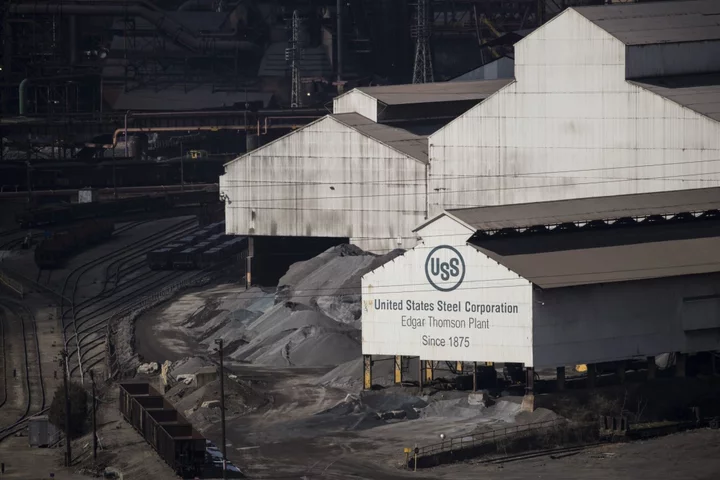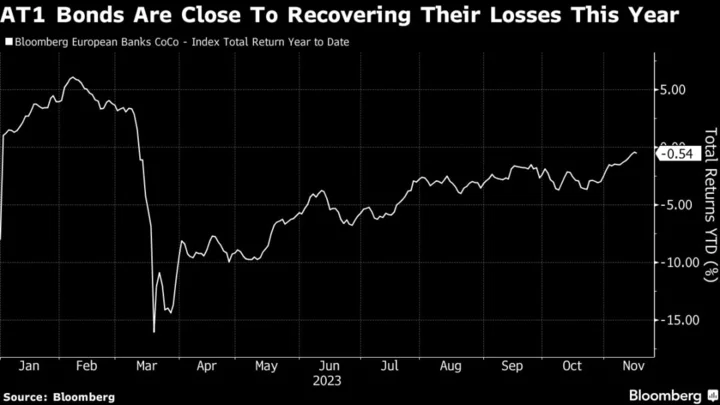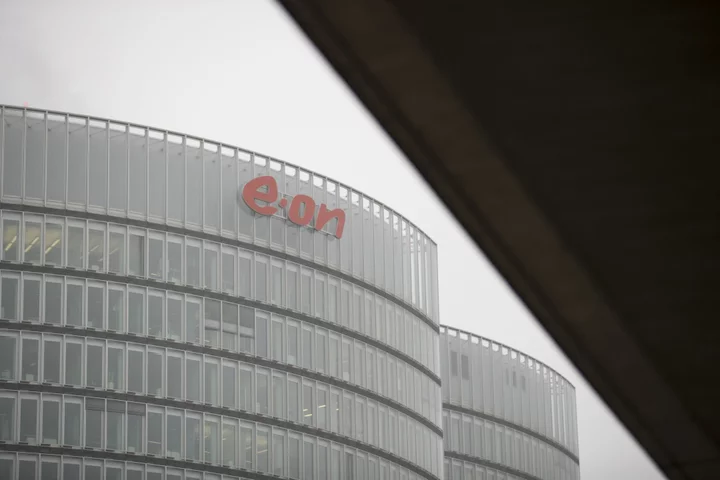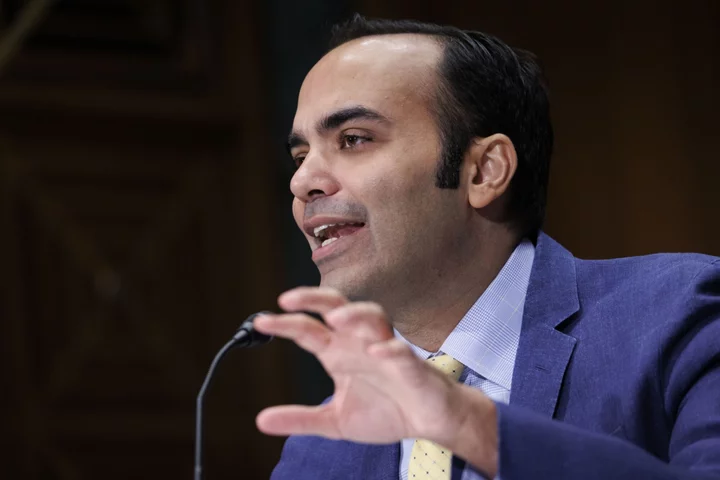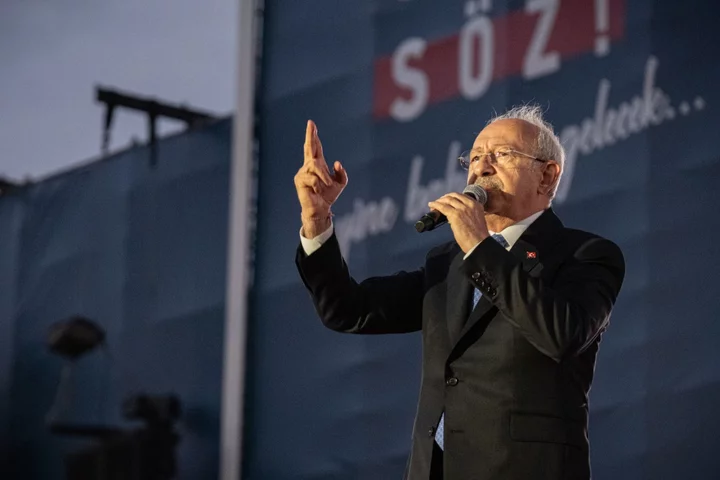When Cleveland-Cliffs Inc. quietly submitted its takeover bid for United States Steel Corp. it couldn’t have chosen a more fitting day. That morning, July 28, US Steel Chief Executive Officer David Burritt was sounding as bullish as can be, predicting a once-in-a-generation boom that promises to send demand soaring.
For much of the past 15 years, steel was a tough sell to investors who had grown jaded over persistent global gluts and cheap imports. Now, with America’s most iconic steel company in the middle of a potential bidding war, there’s a growing spotlight on the potential for a boost in domestic steel demand from President Joe Biden’s landmark Inflation Reduction Act.
“It’s a manufacturing renaissance act,” US Steel’s Burritt said on his July conference call. “We are on the cusp of a once-in-a-generational steel cycle.”
Cliffs’ bid, valued at $7.25 billion based on closing prices last week, would remain secret for a little over two weeks before the situation exploded into the open on Sunday. US Steel has rejected the offer, calling Cliffs’ terms “unreasonable,” and started a formal process to review strategic options. In the latest twist, the bid has now drawn a counter offer from privately owned industrial group Esmark Inc.
The Esmark bid has surprised many market watchers, as it hasn’t been active for years in steel dealmaking and its business is focused on processing and distribution rather than raw steelmaking. Its press release on Monday was also thin on details. But there may be more twists to come: US Steel said over the weekend it had received multiple approaches for part or all of the business.
A key attraction of US Steel is its exposure to the US auto market, traditionally the most profitable part of the industry. And unlike Cliffs, US Steel has made a huge bet on transitioning its business from blast furnace steel production — where iron ore and coking coal are combined to make primary steel in a highly polluting process — to electric-arc furnaces, where steel scrap is remelted in a much less polluting way.
The revived interest in the market stands in sharp contrast to much of the past decade and a half, when too many mills produced too much steel, saturating the global market and keeping prices low. At the same time record Chinese exports flooded the globe, hurting margins further and creating political flashpoints from Brussels to Washington.
Yet slowly those problems have eased. China — along with some Western countries — has retired older plants, tariffs and trade barriers have curbed the constant flow of cheap metal looking for a home and the post-Covid economic recovery has buoyed demand from construction to manufacturing markets.
Now, it’s the outlook for steel in the US that is getting the industry excited.
US industrialists have been singing the praises of the IRA, an infrastructure deal that offers generous subsidies to domestic manufacturers of green technology such as electric-vehicle batteries. The act may drive stronger steel demand in the US, particularly from the metals-intensive renewable energy sector. Steelmakers also will benefit from tax credits for their decarbonization goals.
“It’s a potential structural shock on the horizon and picking up assets that feed that could be a profitable move in the medium term,” said Tom Price, head of commodities strategy at Liberum Capital. “This is a really good time to buy metal processing. It’s been a really bad industry for 40 years and suddenly they’re doing something very important.”
For prospective buyers of US Steel, the potential growth in demand is especially attractive as lawmakers continue to ringfence the country from the mass imports that previously undercut domestic demand.
Steel has become an increasingly hot political subject in Washington, particularly after former President Donald Trump made blue-collar industries like coal and steel a centerpiece of his platform, promising a return to the days of rapid expansion in US manufacturing. Waves of tariffs have made it more difficult to import steel — often leading to disputes with allies in Europe — and underpinned a recovery in steel prices.
A combination of US Steel and Cliffs would create the world’s 10th-biggest steelmaker — world No. 2 ArcelorMittal is currently the only non-Asian steelmaker in that list, producing 50% more than Nucor Corp., according to Cliffs.
--With assistance from Tiffany Tsoi.

